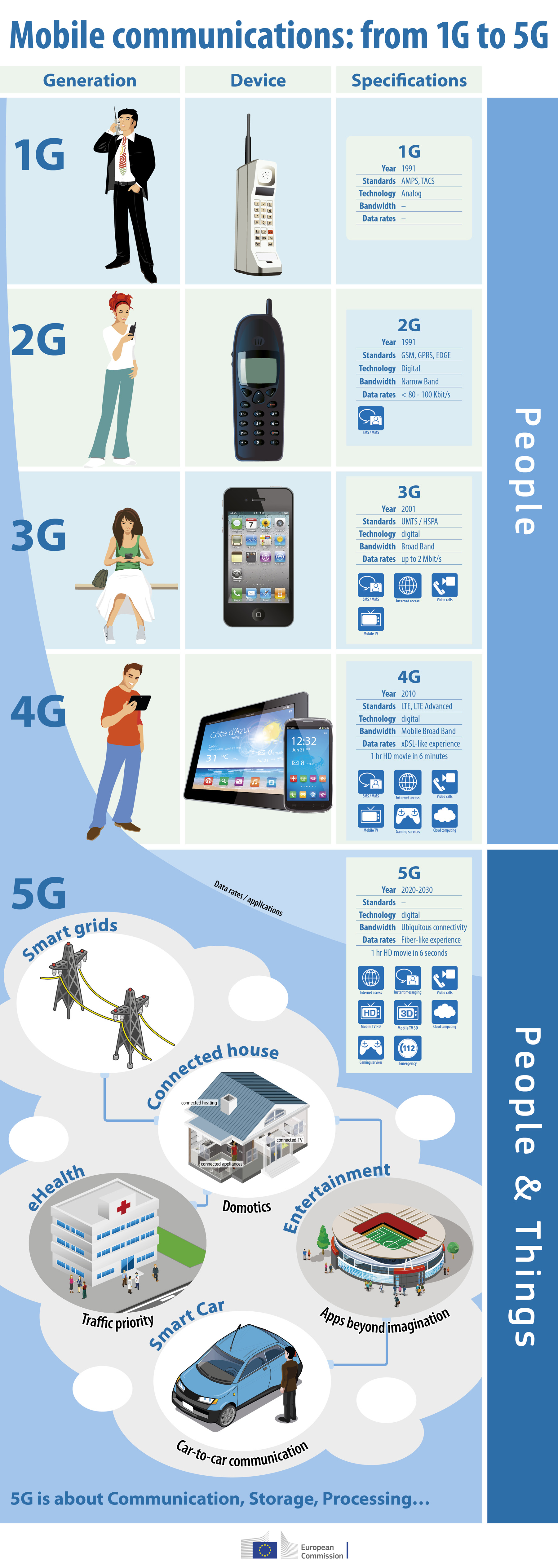Although we are still seeing the rollout of 4G, engineers and computer scientists are already working to make 5G special.
Up until now mobile broadband has focused on increasing speeds to cope with the larger downloads we see from gaming and streaming, whereas 5G will focus on the number of devices connected. With the staggering rise of IoT, a new network will need to cope with trillions of connections, be energy efficient, secure and super fast.
The European Commission calls 5G “the most critical building block of our digital society in the next decade”. To go with it they have earmarked €700 million of public funding and want to kick-start 5G deployments by 2020.

But it’s not just the EU who want connected cities and smart grids. Intel, Nokia and Samsung, amongst many others, want a bite of 5G innovation.
So could 5G replace Home Broadband?
The answer, possibly.
- Will it be fast enough? Experts and engineers are looking at a theoretical minimum of 10Gbps but as fibre technology improves year-on-year, there is sure to be competition.
- How reliable will it be? There’s no point in cancelling your home broadband contract if you have no 5G signal covering your house.
- The dreaded data limit. Even unlimited mobile broadband plans sometimes have a sneaky cap at 16GB or even 6GB where speed is then reduced.
- It may be cheaper. You won’t have to pay line rental charges and one-month rolling contracts are more widely available.
Update (Late November 2016): It was recently announced here in the UK that the Government is investing more than £1bn to spread fiber networks and 5G across the UK. The UK Chancellor Philip Hammond said “My ambition is for the UK to be a world leader in 5G”. Source: Real Business
